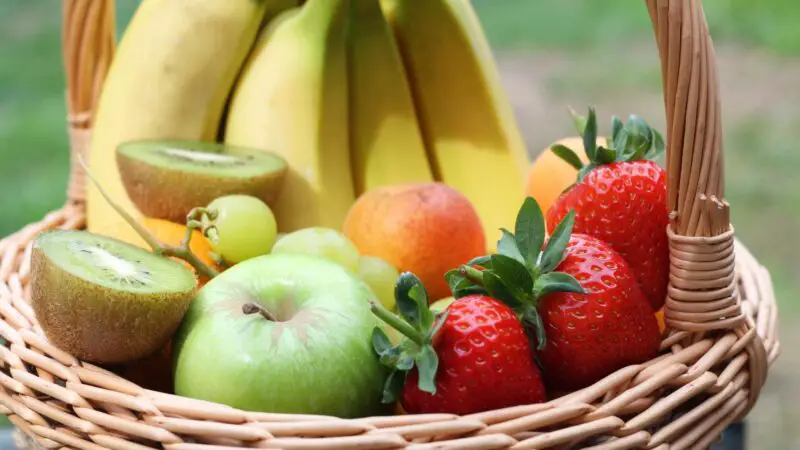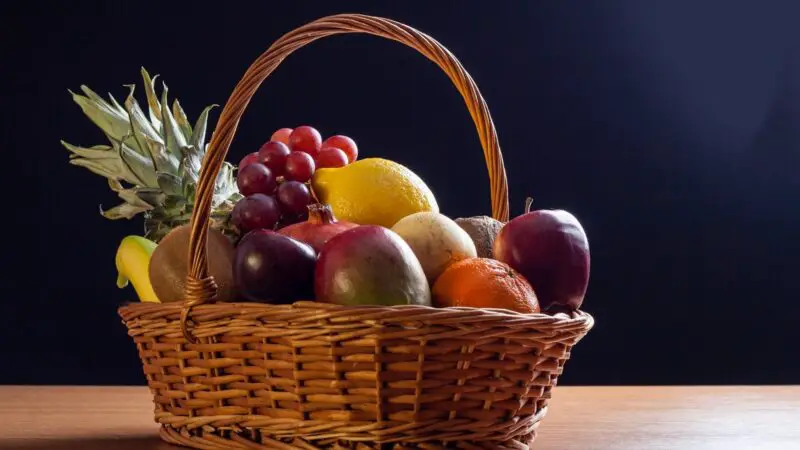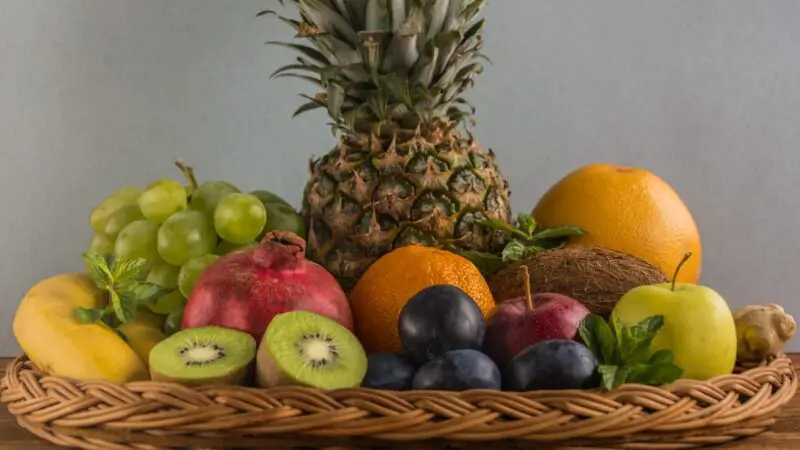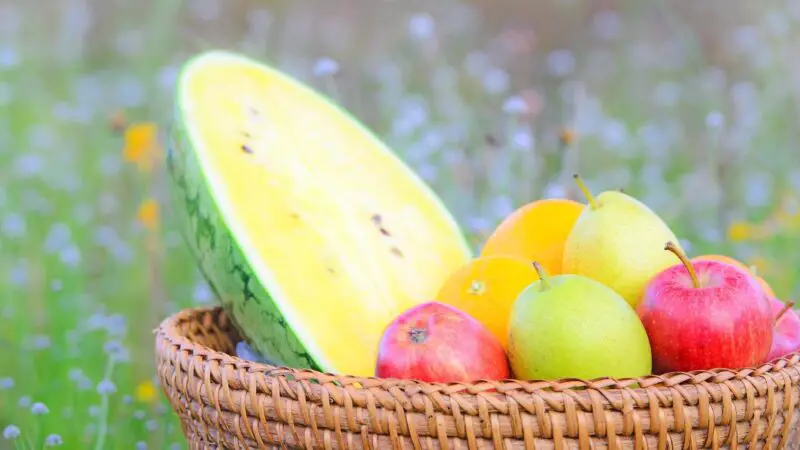Most people love having pets. But along with getting a pet, you will get more responsibilities. Diet is very important for pets, especially for the more sensitive ones, like guinea pigs.
Guinea pigs should never eat cooked food. They are allowed to eat just raw food, along with hay and pellets, which are rich sources of vitamins.
Can guinea pigs eat fruit? Guinea pigs can eat fruit. The reason this question is frequently asked is that guinea pigs should not consume sugar. However, a little portion of fruit a couple of times a week will not hurt them. Moreover, fruits have a lot of vitamins necessary for a healthy guinea pig.
Read on to learn more about fruits, including their benefits, nutrition facts, and risks for guinea pigs.
Table of Content
Is Fruit Good for Guinea Pigs? | Health Benefits

In general, fruits contain a lot of vitamin C. Vitamin C is a vitamin that guinea pigs need in their diets, just like humans do. However, guinea pigs cannot produce vitamin C.
They lack a special enzyme that produces vitamin C, so they need a good intake of vitamin C in order to function properly.
Moreover, fruits are sweet and guinea pigs love their taste. However, they are not supposed to eat sugary foods all the time. Fruit is considered a treat and they are a good addition to guinea pigs’ diet.
There are some fruits that can help with the digestive system of guinea pigs. Among them, the most popular are kiwi, apples, and pineapples. Kiwis are good for constipation, apples regulate the intestinal flora, while pineapples eliminate the excess gas.
A lot of fruit has a very high content of water. Consuming them can be very refreshing in warm weather, and very hydrating for the body of the guinea pig.
Melons and watermelons are very well known for their huge content of water. Water is keeping the whole organism in check. However, don’t feed them too much because they still contain lots of sugar.
Nutrition Facts of Fruits

Vitamin C plays a very important role in the body of a guinea pig. It assures a well-functioning organism, helps with the healing of wounds, and is essential for bones and teeth.
Lack of vitamin C in their diets can be very dangerous. There are several diseases that can be caused by vitamin C deficiency – scurvy, bone deformities, and immune system problems. Low levels of vitamin C can cause teeth to fall out and it can also increase the risk of them breaking a bone.
Some fruits that are very rich in vitamin C are cranberries, oranges, kiwi, grapefruit, and strawberries. However, high levels of sugar still exist in the composition of these fruits, so give them to your guinea pigs three or four times a week.
Is Fruit Bad for Guinea Pigs? | Possible Risks

Guinea pigs are not allowed to have a huge intake of sugar. This can cause diabetes and a higher risk of premature death.
Also, fruit is generally very acidic. Small quantities do not hurt guinea pigs. However, if given daily, fruit can cause sores, especially throat sores, because of their acidity.
What Fruits Can Guinea Pigs Eat?

In addition to fresh hay and leafy greens, guinea pigs can eat the following fruits in small amounts:
- Apples
- Apricots
- Bananas
- Blueberries
- Cherries
- Cucumber
- Kiwi
- Mango
- Melon
- Oranges
- Papaya
- Pears
- Raspberries
- Red tomatoes
- Strawberries
Related Questions
How Often Should I Feed My Guinea Pigs Fruit?
You can feed them about 3 to 4 times a week, even daily if you give them really small portions.
How Should I Feed the Fruit to the Guinea Pig?
Never give your guinea pig old dried-out fruit. They need to eat fresh fruit and be well washed. Even organic fruit can have left-over pesticides on them.
Dry them down using a towel. Serving them dripping wet, even though it is a good way of incorporating more water into their diets, makes the bedding wet and uncomfortable to sit on. Cut the fruit into little pieces for your guinea pig to have an easy time eating them.
Make sure to remove all the seeds or stones that may be found in fruit like melons, oranges, and cherries. Also, don’t remove the skin (peel) of fruit like apples. However, remove the orange peel.
Why Do Grapes Cause Such a Big Debate?
Grapes cause a big debate because a lot of doctors believe it cause kidney diseases, but it is not proven. If you decide to feed your guinea pig grapes, make sure to remove the seeds.
Why Feed Fruit to Guinea Pigs When There Are Vitamin C-rich Vegetables That Do Not Contain Sugar?
Just like humans, guinea pigs can get bored of always eating the same food. Besides possibly getting depressed, they might also become literally sick of the same foods all over again.
Fruit is preferred over vegetables for feeding to guinea pigs because it is sweet. They would eat fruit all day if you let them, but it is unhealthy for them.
What Are Guinea Pigs Not Allowed to Eat?
Even though people are tempted to feed their pets whatever they eat, guinea pigs require a great deal of attention in all aspects, including food.
Guinea pigs are very sensitive rodents. They cannot process cooked food or meat. However, they need to have on-hand hay at all times and fresh water. Additionally, vegetables and fruit need to be given in small portions at a certain time.
Quick Facts on Fruits
Dried fruit actually contains even more sugar than fresh ones. Avoid feeding your guinea pigs dried fruit. However, raisins are allowed in extremely small quantities and very sparingly.
Guinea pigs need 10 to 30 mg of vitamin C daily. This should be easily extracted from different fruits and vegetables. However, if you feed your guinea pig too much vitamin C foods, there will be no problems because guinea pigs cannot store vitamin C. If they need it, they use it and if they don’t, it will be eliminated through urine.
We have also made a full list of foods that guinea pigs can and can’t eat (150+ Types of Foods). Be sure to also check our recommended products page for everything you will ever need to assure a happy life for your guinea pigs. Hope this information was helpful and you have found the answer you were looking for.
List of Sources
Vitamin C Requirements of the Guinea-Pig
Nutrient Requirements of Laboratory Animals: Fourth Revised Edition
The Effects of Diet on Anatomy, Physiology and Health in the Guinea Pig
